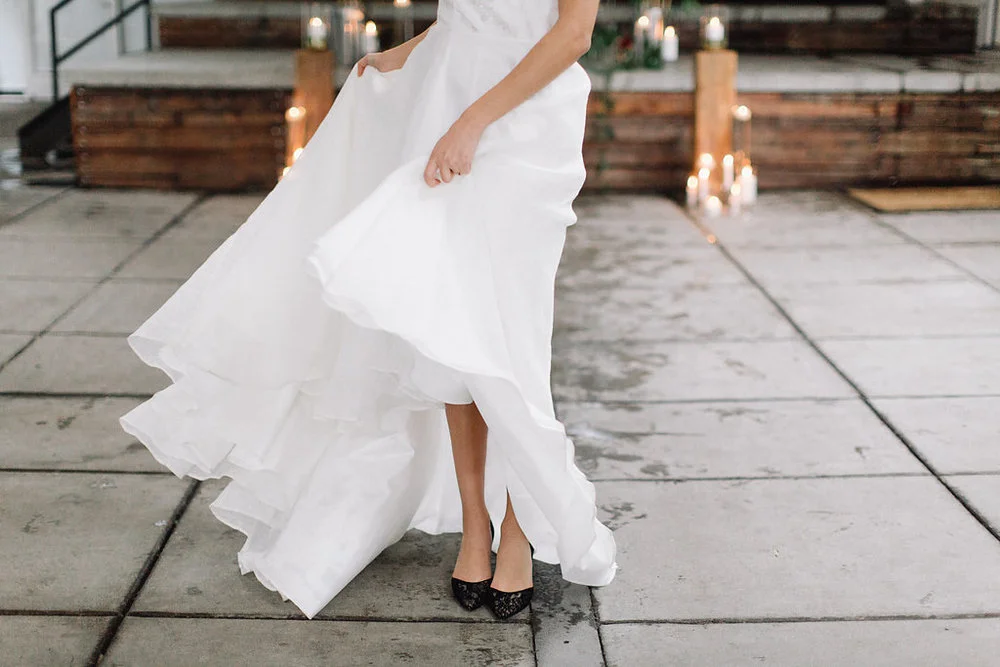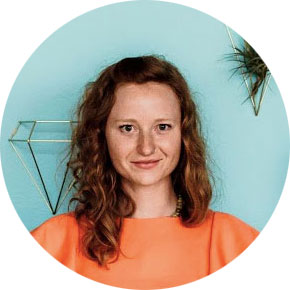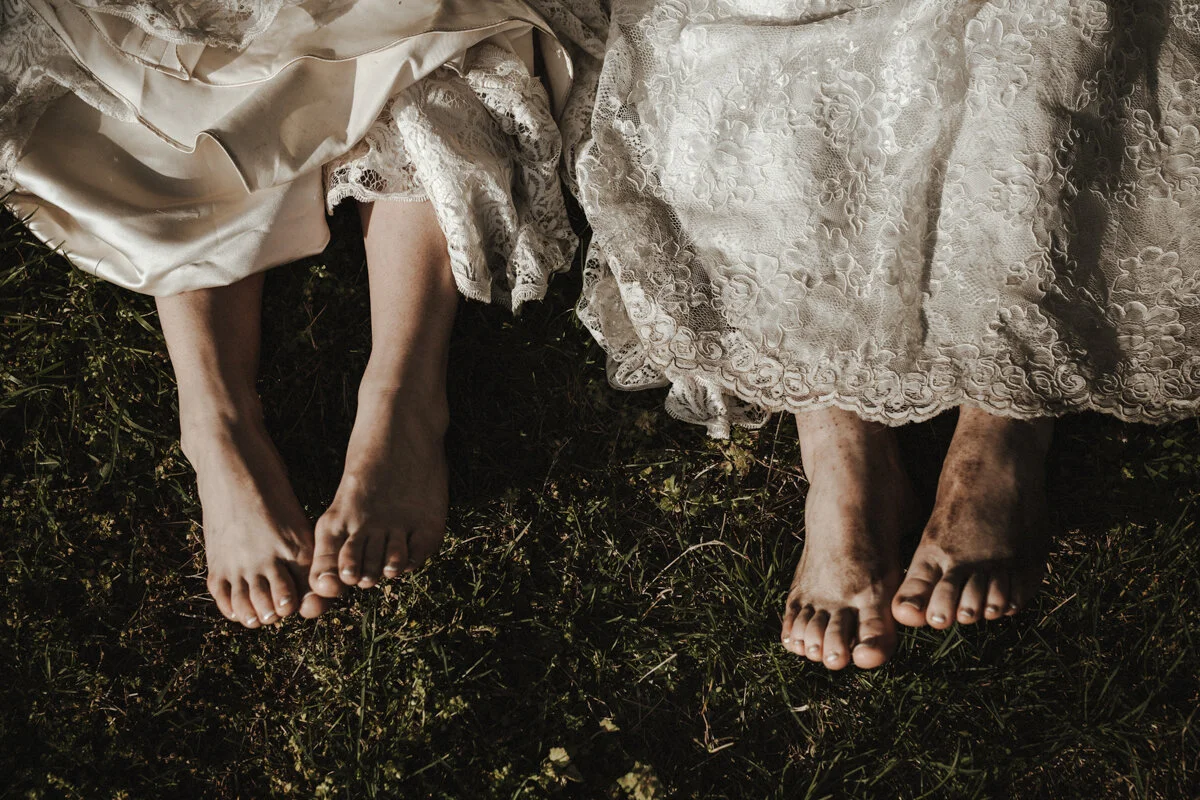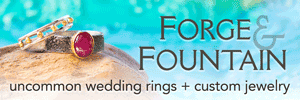Bridecentrism, Bridezillas, and "The Best Day of Your Life"
/Photo by Eden Willow Photography
The wedding industry didn’t grow to be worth $54 billion because Americans just love marriage so much. No way — marriage is cheap! We’re talking marriage license fees and gas money; you can get married for less than $100. The wedding industry grew to be so enormous because it is built on one big lie: a wedding is the best day of a woman’s life. Maybe it’s not a lie as much as it is a fantasy that we are socialized to embrace from day one. They slap that pink cap on your head, and next thing you know you’re living a Disney-themed childhood in which your career goals amount to being a glitter princess and a mommy to a brood of doll babies. But who will pay for your pink ball gowns and tea parties for your woodland friends? Oh, you know who: Prince Charming.
So how old were you when you started thinking about your wedding? I can remember conceiving of my wedding to Charming around the age of six, I doodled Mrs. so-and-so in middle school, and I started seriously daydreaming about concrete wedding details sometime in college. It feels embarrassing to admit, but as a girl in this culture, the girl-meets-boy storyline is everywhere and nearly impossible to avoid. How many romantic comedies targeted at women conclude with a happily-ever-after wedding? Men are not sold this same narrative; little boys watch movies and read books about adventure, heroism, honor, and operating heavy machinery. While weddings are treated as the beginning of a bride’s happiness, they symbolize the end of freedom for a groom.
The wedding industry knows this. Ohhh yes. Wedding professionals know that women were sold this promise of true love and happiness, and a wedding is the pinnacle moment in which you, the bride, have achieved your life’s work of locking down a man. And thus, the entire wedding industry is oriented around the bride. It’s her big day. After all, she’s the one who will be more willing to spend money to ensure that every detail is perfect. A man’s job is to just shut up and show up.
Amy is a wedding planner in New York, and she is fed up with bridecentrism. “I think the industry really perpetuates it and needs to take responsibility,” she says. “My belief is that the more we convince women that a wedding is the greatest day of her life, the more money the industry makes. So, there's a vendor's incentive.” But as a wedding vendor herself, she sees that there is a greater cost associated with this messaging: “lack of perspective, wastefulness, and ultimately, a super un-empowering message to women.”
Wedding blogs, magazines, and vendors all make the assumption that the bride is the one researching, planning, and spending the money for a wedding, and so they cater to the bride as the primary client. But now the term “bridezilla” is used to describe women who take the bridecentric messaging at face value. Amy says, “I think so many vendors aren't honest with themselves that bridezillas are not born, they are made — by the industry. We continue to tell them: this is the most important thing in your life.” Amy clarifies that she hates the term “bridezilla” for this reason, and Erica, a wedding planner in North Carolina, agrees. “Put everything on the woman, build it up as the BEST DAY OF HER LIFE, and then literally demonize her when she is overwhelmed and breaks.” Erica wants to see more men step up and share an equal portion of the wedding planning labor.
Centering the bride as the focal point of the wedding also has bizarre and sometimes offensive effects on queer couples. It’s as if the existence of two brides or two grooms tumbles the princess plotline like a house of cards. Cindy of Missouri says, “I personally experienced this as an insane lag time in vendors recognizing that we were a couple and not bride and her best friend/sister/maid of honor. Over and over, I found myself saying things like, ‘No, we are both the brides. We are marrying each other.’ It was frustrating and irritating and a constant reminder of how LGBTQ+ couples are excluded by the industry.”
Mark of Ohio recalls from wedding planning, “Almost every website or vendor focuses on the bride. Whenever we would call to schedule a meeting or ask about a product or a service, vendors would always refer to the bride. As an LGBT couple, we are somewhat used to the assumption of heterosexuality, but it never got less awkward when we had to explain there wasn’t a bride.” Mark recalls receiving automated emails from websites like The Knot that assumed a female reader and often had subject lines like “Have you found your dress yet?” Jacob of New York found this equally baffling, wondering: “Do all grooms (even in straight relationships) get the emails about ‘dress styles’ and ‘how to store your dress after the big day?’”
The term bridal is also frequently used to describe wedding related items and events that are not actually specific to women. For instance, Michael and Josh of Ohio chose to have a “bridal” shower. Michael says, “It was incredibly casual, and it was really nice. It was a brunch at our friend’s apartment about a month before the wedding.” They knew a wedding shower provided an extra opportunity to spend quality time with friends and family. Mark and Jason had a shower, too: “We played games, but they were focused on how well we knew each other rather than what gender we are. It was basically a big party!”
While discussing the “bridal” suite at their venue, Michael says, “I’m certainly not offended by the word ‘bridal,’ but I also don’t really understand the point of intentionally separating the genders, whether it’s a heterosexual couple or an LGBTQ couple.” He continues, “I think a lot of the bridecentric aspects of a wedding come from preconceived gender roles women are supposed to personify. But it isn’t an inherently gender-specific desire — wanting to plan a huge event or wanting to be married. It’s individual, or it should be at least.”
So I invite you, dear readers, to imagine with me what the wedding industry would look like if the assumption was no longer “it’s her day,” but rather that two people were entering into marriage with equal desire on equal terms. Speaking for myself, I think I have enough time in my schedule for both Say Yes to the Dress AND You Look Cute in that Suit, don’t you?
LIZ SUSONG
Liz is the Editor for Catalyst Wed Co. and a Contributing Editor for Brides.






















